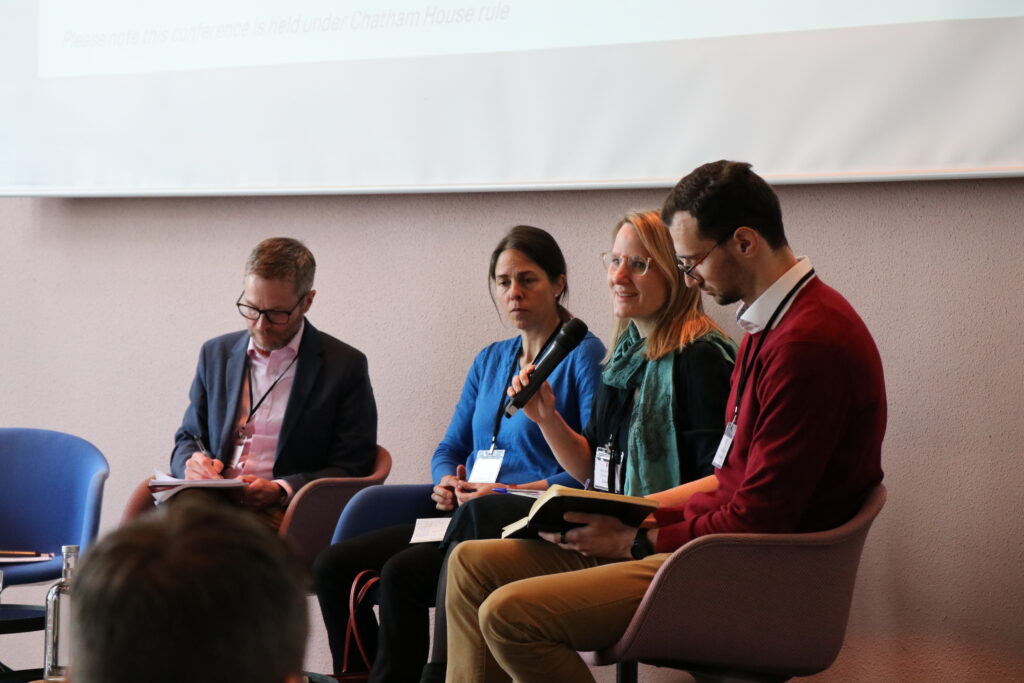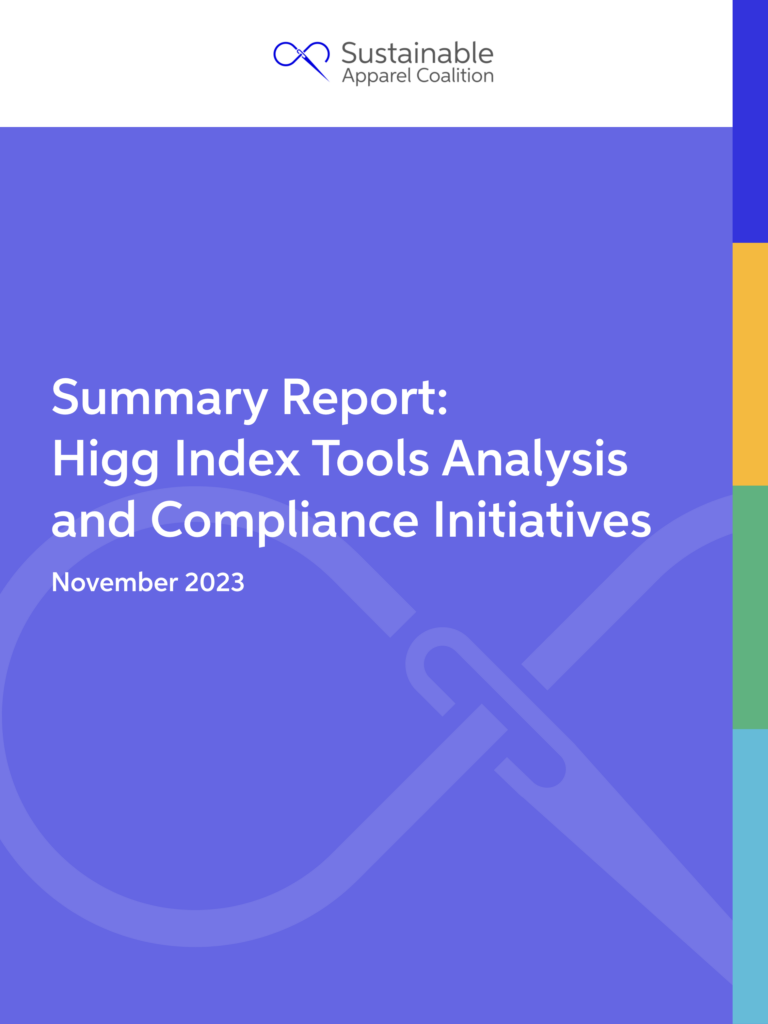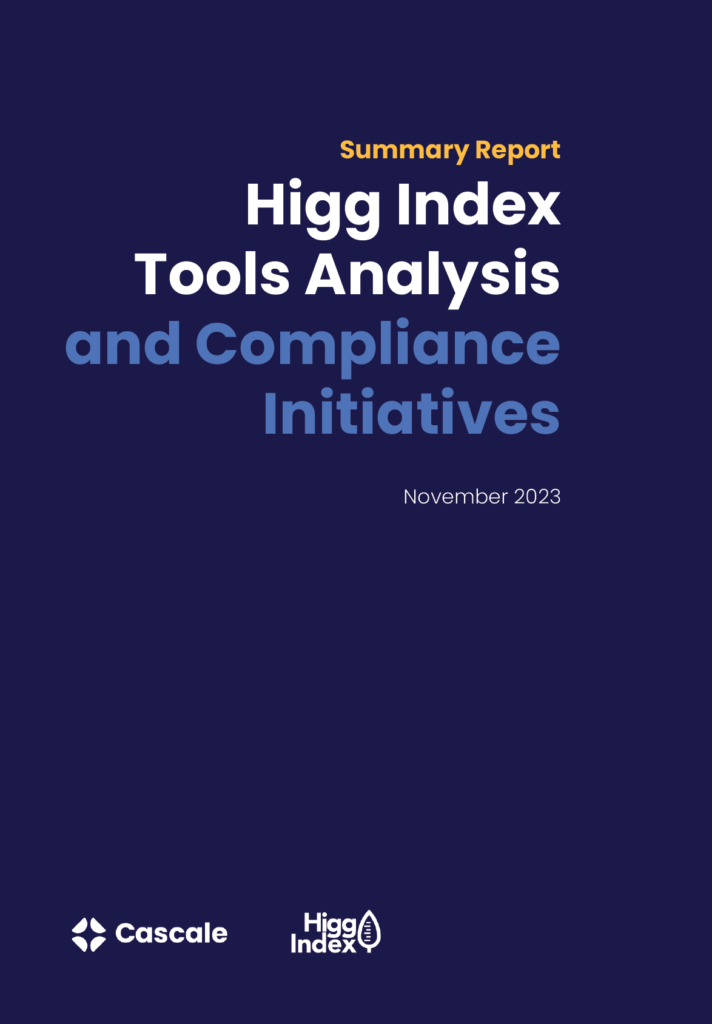
Dear Fashion: Let’s Step Up and Get Aligned
In a recent opinion editorial with WWD, CEO Colin Browne argues fashion needs to take more serious and coordinated action on sustainability. Read the highlights here!


As we strive to create a more sustainable and equitable consumer goods industry, our involvement in developing the Product Environmental Footprint (PEF) Category Rules (PEFCR) for apparel and footwear is pivotal.
The European Commission has engaged Cascale to convene a multi-stakeholder Technical Secretariat (TS) to set a standardized methodology for product environmental impact assessment.
This initiative underscores our commitment to fostering industry collaboration and ensuring that sustainability claims are reliable and verifiable. By facilitating the development of the PEFCR, we are supporting the EU in establishing a common language for calculating environmental footprints, which is essential for combating greenwashing and promoting transparency.
The cost of participation as a voting member in the TS, set at 40,000 EUR a year over five years, reflects the comprehensive scope and extended timeline of this critical project. This fee was determined collectively to support the development of the PEFCR, with a minor contribution from the EU Commission during the COVID crisis.
Addressing concerns about bias in the PEF methodology, it’s important to note that the data used is managed by the EU Commission and recognized data providers, ensuring that it is scientifically grounded and unbiased. The PEF methodology itself does not favor any particular material but aims to provide a reliable foundation for sustainability assessments.
All organizations interested in joining the TS were accepted, ensuring an inclusive and comprehensive approach to developing the PEFCR. Our role is to facilitate this collaborative effort, bringing together diverse perspectives to drive meaningful change in our industry.
It’s crucial to highlight that the PEF is an initiative driven by the democratically elected European Parliament, not by the industry or Cascale. From a technical perspective, the methodology is overseen by the Joint Research Center of the EU, which guarantees that the approach is fair, unbiased, and science-based.
We remain dedicated to our mission of leading the industry toward sustainable practices, and our support for the PEF initiative is a significant step in that direction. Together, we can create a consumer goods industry that gives more than it takes – to the planet and its people.

Elisabeth von Reitzenstein, senior director of policy and public affairs at Cascale, joined a panel at Innovation Forum earlier this month on how brands can be more reactive to incoming legislation. Moderated by Ian Welsh, publishing director at Innovation Forum, the panel also included Kresse Wesling, co-founder and director of CBE, Elvis & Kresse, and Ilya Kleyner, lead sustainability solutions architect at Altruistiq.
Von Reitzenstein gave an anecdote, noting the progress brands have made over the last 15 years on their public affairs activities. She emphasized the importance of brands stepping up their resources to be proactive, and avoid the potential reputational risk of only taking action when required to comply.
She welcomed a wider collaborative approach, and encouraged brands to be actively involved in policy discussions, sharing knowledge and developing joint industry positions within industry organizations and initiatives such as the Policy Hub. Von Reitzenstein detailed the importance of prioritization of collective action along the supply chain, including transparency to identify and address sustainability issues. She explained the significance behind “Cascale’s” new name, which is “Collective Action at Scale” and reiterated the fact that this collective action had to happen together with manufacturers.
She highlighted the Higg Index suite of tools as an example brands can use to understand and improve their sustainability performance. Cascale is committed to continuously updating the Higg Index tools to meet the needs of its members, users and the broader industry and support them in their compliance journeys and beyond.
This year, Cascale launched a webinar series sharing how the Higg Index tools have been mapped to existing and upcoming legislation, and how it plans to evolve the tools accordingly. The organization has also shared and continues to develop resources for members and Higg Index users to ensure they’re well-informed and supported in their compliance journeys.

Cascale has released its 2024 Policy Priorities.
Rooted in the organization’s strategic plan, Cascale outlines eight key policy areas of focus aimed at fostering impactful change and driving industry-wide transformation by aligning policymakers and stakeholders toward sustainable solutions.
“As we face mounting environmental and social challenges, collective action is essential to achieve a more sustainable future,” said Elisabeth von Reitzenstein, senior director of public affairs at Cascale. “Through these policy priorities, we call on policymakers to work hand-in-hand with industry stakeholders to create a level playing field and foster innovation that benefits both people and the planet.”
As the world prepares for the impact of key elections in pivotal countries like India, Pakistan, the U.S., the U.K., and within the European Parliament, 2024 presents a unique opportunity to shape policy and influence decision-making. Cascale recognizes the importance of articulating its global policy priorities to policymakers worldwide, aiming to advance a more sustainable consumer goods industry. The policy priorities were developed collaboratively with Cascale’s Public Affairs Strategic Council, which is composed of globally dispersed public affairs specialists from brands, manufacturers, NGOs, and trade associations.
In the face of pressing global challenges such as environmental degradation, social injustice, and economic volatility, Cascale’s strategic plan centers around three foundational impact goals: combating climate change, ensuring decent work for all, and shaping a nature-positive future. Cascale’s 2024 Policy Priorities, which directly stem from its strategic plan and impact goals, include eight identified priorities for global policymakers:
A key message across the eight priorities is the imperative of data-driven solutions and the necessity of fostering collaborative partnerships between policymakers, businesses, and civil society. Cascale champions a balanced approach that acknowledges both the imperative of global standards and the nuances of regional contexts.
On the EU level and in line with Cascale’s collaborative spirit, Cascale partners with the Policy Hub, an initiative that unites the apparel and footwear industry to speak in one voice and propose policies that accelerate circular practices. This collaboration ensures the alignment of policy recommendations and synergy in the organizations’ advocacy efforts. The Policy Hub’s “Policy Recommendations for the 2024-2029 EU Mandate” serves as the EU-specific policy papers for Cascale. Additionally, Cascale is planning further collaborative efforts with its global Public Affairs Strategic Council members to draft region-specific policy recommendations for the Asia-Pacific and U.S. regions.
Collaborating closely with key partners like Worldly, the exclusive platform provider of the Higg Index suite of tools, alongside other external stakeholders and policymakers, Cascale is dedicated to empowering its members to navigate emerging requirements effectively. Together, we’re determined to drive positive, lasting change within the consumer goods industry, forging a path toward a more sustainable and equitable future for all.

Developed in partnership with the Global Fashion Agenda, the Sustainable Apparel Coalition has developed a Higg Index Tools Analysis and Compliance Initiatives Summary Report, which is now available to the public.
In collaboration with professional consultancies and partners, the SAC initiated analyses of the Higg Index tools in relation to relevant existing and upcoming EU and national (European) legislation. The summary provides key messages and main outcomes of the analysis, along with proposed next steps.
As part of this process, the SAC developed an overview for members explaining how relevant European legislation is applicable to the requirements of the Higg Index tools. It intends to map out the complex and rapidly evolving policy landscape, and support members in their compliance work with their own legal and compliance teams.
The initial analysis considered factors such as corporate sustainability due diligence and corporate sustainability reporting and was intended to assess to what extent the Higg Index tools can assist members in their compliance efforts, where appropriate. The SAC is also collaborating with Worldly, an impact intelligence platform that hosts and supports leading industry solutions including the SAC’s Higg Index tools, to deliver a white paper that comprehensively outlines how brands can use the tools to prepare for compliance with the European Corporate Sustainability Reporting Directive (CSRD), in particular.
Key messages of the summary include:
As the Higg Index tools touch upon many aspects included in the regulatory and reporting obligations, the purpose of the collaborative work is to keep abreast of the latest key regulatory developments. This helps in considering potential refinements to the Higg Index tools in the future. Relevant legislation is constantly changing, and many pieces of legislation have yet to be finalized. Hence, the analysis will be conducted continuously, so the Higg Index tools ceaselessly meet the evolving expectations and needs of members and users.
To assist our members in navigating the evolving regulatory landscape, we initiated analyses of the Higg Index tools in relation to relevant existing and upcoming EU and national legislation in collaboration with partners and professional consultancies.
